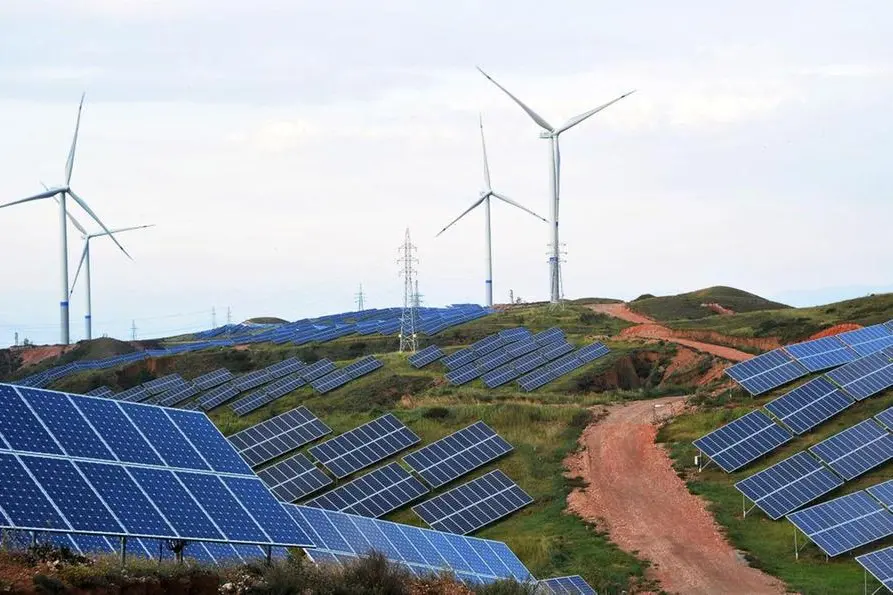PHOTO
In a rare moment of constructive collaboration, energy and electricity minister Dr Kgosientsho Ramokgopa called for a major acceleration of South Africa's renewable energy programme, highlighting a need to address systemic challenges in the sector to unlock significant investments. Speaking at a recent ministerial seminar, he said that ensuring energy security through a robust renewables strategy is critical for the country’s economic growth and sustainability – a sentiment that was echoed by the Independent Power Producers (IPP) programme administrators.
Minister Ramokgopa was big on renewables during his seminar. "By our own collective admission, we can improve this programme, but what cannot be taken away is that the IPP office (IPPO), led by Bernard (Magoro), has done exceptionally well," said Ramokgopa, expressing confidence in the current direction of the IPP programme, managed by Bernard Magoro and the IPPO.
He added that the programme has gained international recognition, with other African ministers inquiring how South Africa has managed to set up such a credible initiative.
“Since the launch of the first round of the IPP, we have made remarkable strides in transforming our policy as energy managers,” reported Dzunani Makgopa, head of finance and corporate services at IPPO, at the 2024 Windaba conference.
“Today we have appointed 141 IPPs as providers, and by June 2024 these IPPs have collectively generated around 119,000 jobs.”
Makgopa’s comments complement Ramokgopa’s sentiments that a more “aggressive” approach is needed to incorporate renewables at a scale previously unseen in South Africa.
“We are going to be a bit more aggressive in onboarding renewables,” the Ramokgopa declared.
This plan includes addressing fundamental weaknesses in the existing system, such as slow project approvals, infrastructure bottlenecks, and the underutilisation of South Africa's abundant natural resources, particularly in provinces like the Northern Cape.
IPP is the cornerstone
The minister noted, however, that despite the programme's success, significant challenges remain, particularly with grid capacity and project rollout.
"We have approximately 10,000MW from multiple bid windows that remain unallocated. How best can we improve this situation?" he asked.
He highlighted the need for more efficient and transparent stakeholder engagement to resolve such issues.
The IPP programme has been a cornerstone of South Africa’s renewable energy strategy, attracting over R200bn in investments.
Makgopa noted that while the programme’s primary focus has been on generating energy, it has also had a transformative impact on local communities.
"The IPP programme has created about 85,000 jobs for South African citizens both during construction and operation, directly contributing to job creation, especially in rural areas," she said.
Falling costs increases value
Ramakgopa banged his affordability drum again, mentioning that the cost of renewable energy technologies has dropped significantly over the years, making it a more viable option for energy security.
"From Bid Window One, PV costs have gone down by 85% and wind by 75%," he explained, adding that this trend should make electricity more affordable and contribute to alleviating energy poverty.
This address, however, came at the end of a week where Eskom made public its proposed tariff increases for Eskom direct customers of 36.15% (1 April 2025 to 31 March 2026), 11.81% (1 April 2026 to 31 March 2027) and 9.10% (1 April 2027 to 31 March 2028).
The power utility was clear in its intention, saying that:
The transmission problem
Eskom maintains that the tariff hikes will “contribute to the successful operation of Generation, Transmission (NTCSA) and Distribution in Eskom”.
One of the primary bottlenecks for the onboarding of renewables identified by the minister is transmission capacity.
“The elephant in the room is the issue of capacity of the transmission grid,” Ramokgopa said, noting that the establishment of the National Transmission Company of South Africa (NTCSA) is expected to play a critical role in this regard.
He hinted at a major upcoming announcement regarding NTCSA that will detail how it plans to facilitate the integration of new renewable energy projects.
Dzunani Makgopa, head of finance and corporate services at IPPO, at the 2024 Windaba conference.
Makgopa echoed these concerns, pointing out that achieving a just energy transition requires balancing a wide range of stakeholder interests and maintaining policy consistency.
“Over the last few years, there have been quite a lot of energy and policy developments towards a transition that was sustainable, interlinked, diverse energy based as well as an open, competitive market,” she said.
Job creation
Ramokgopa was adamant that an accelerated renewable energy strategy could create jobs and improve South Africa’s competitiveness globally.
He also recognised the need to build confidence in the system, ensuring that processes are transparent and that stakeholders are actively involved in finding solutions.
The current stop-start approach to procurement, he warned, has deterred investment, and hampered the development of a local industry.
“Once we introduce certainty and the market has confidence in the process… then we can invest, and then we can place new conditions on how we should localise here.”
Energy sovereignty
“The more we are able to add renewables, it helps us to attain conditions of energy sovereignty,” said Ramokgopa, making reference to the growing pressure from the EU’s Carbon Border Adjustment Mechanism, which could affect South African exports unless the country transitions more rapidly to greener energy.
Ramokgopa’s commitment to expanding SA’s renewable energy capacity is a refreshing departure from previous policies and signals a pivotal moment for the industry, as the government aims to build the most successful renewable energy programme in the global south.
“The IPP programme is doing more than just reshaping the energy landscape; it is also transforming the lives of South Africans,” said Makgopa.
“We are lifting communities across the nation. The achievements in job creation, economic growth, and community involvement highlight our collective dedication to inclusivity and sustainability.”
All rights reserved. © 2022. Bizcommunity.com Provided by SyndiGate Media Inc. (Syndigate.info).





















